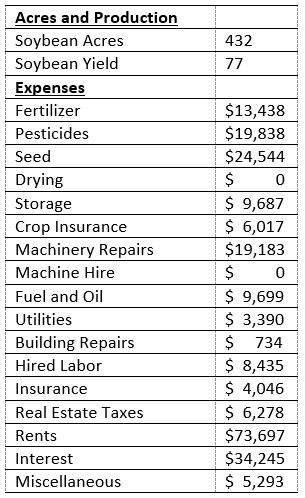As our farm businesses use tax planning tactics to reduce current tax liability impacts, we do not completely reduce the tax but move the tax to a future year. This webinar will provide details on the importance of identifying and calculating your operation’s deferred tax liability and how that can affect your current and future strategic farm management decisions.
Presenter: Dick Wittman, Wittman Consulting, Farm Manager/Family Business... Read More →
ILSOYADVISOR POST
Calculating Your Breakeven
March 26, 2020
By Emily Carls and Jessie Shoopman
The two most common topics of producers are weather and prices. Both are vital to the success of an operation, but are also the most unpredictable part of a farming operation. Knowing the right time to sell grain and how much to sell can be stressful and frustrating. One way to minimize the risk in marketing grain is to know your breakeven price, or the price needed to generate enough revenue to cover all of the costs of production. Knowing your breakeven can help take some of the emotion out of marketing grain.
How to Calculate the Breakeven Price
To calculate the breakeven price, we first need to make sure that we have all the necessary information. You will need to gather acres, average yields and crop expenses. Let’s take a look at the example below (for simplicity we will only be looking at the cost to produce soybeans).

The total operating expenses to produce soybeans for this operation are $238,524, the total bushels that will be sold are 33,264. Therefore, in order for the operation to cover the operating expense, they will need a price of at least $7.17 ($238,524/33,264).
In the above calculation, we only accounted for the cash operating expenses. However, it’s also important to think about debt service (principal payments), family living, and income taxes.

We can see how the breakeven price changes in the tables below. By starting with the breakeven price for operating expenses of $7.17, each table represents how adding a single expense will affect the breakeven price needed.



In order to arrive at a total price needed to cover operating expenses, debt service, family living and income taxes, we need to sum $7.17, $0.54, $.95 and $0.21. This gives a total breakeven price of $8.87.





Comments
Add new comment